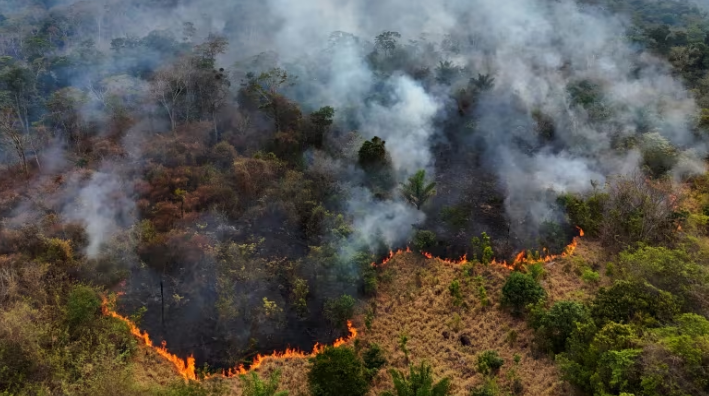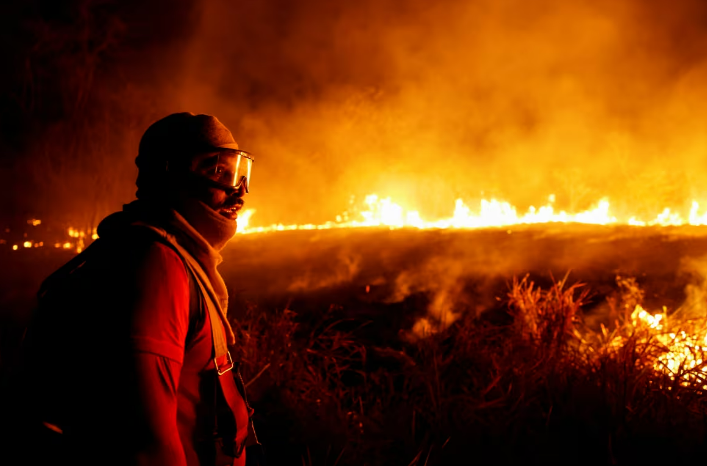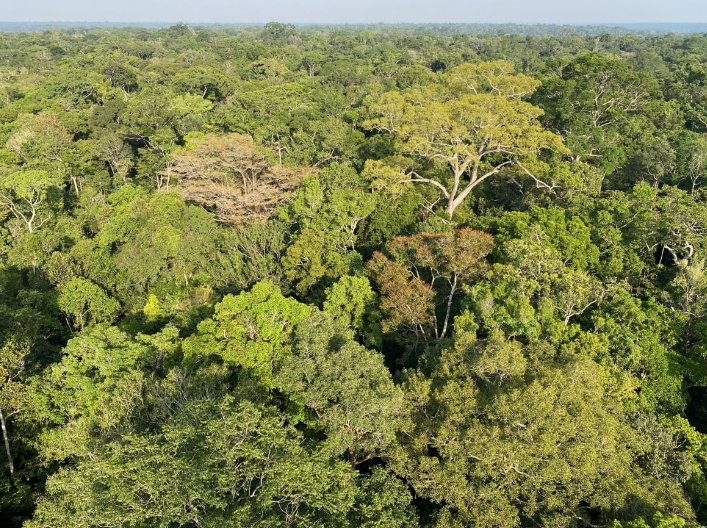
The Amazon rainforest, often referred to as the “lungs of the Earth,” is facing an alarming threat as record-breaking wildfires engulf parts of Brazil. Here’s a detailed look at the factors contributing to this environmental crisis:
Unprecedented Blaze
Roraima State in northern Brazil has witnessed a surge in wildfires, with the number of fires in February exceeding five times the average. The fires, exacerbated by El Niño-induced climate changes, have persisted into March, leading to dire consequences.
Climate Change Amplifies Impact
Elevated temperatures, historic drought, and rampant deforestation have created a perfect storm for wildfires in the typically humid rainforest. Despite efforts to reduce deforestation rates, the scorching temperatures of 2023 have severely stressed the Amazon’s ecosystem.
Carbon Emissions Surge
Analysis by Copernicus, a European monitoring service, reveals that February witnessed the highest carbon dioxide emissions from Brazilian fires in over two decades. Roraima state alone contributed half of the total emissions, underscoring the severity of the situation.
Environmental Devastation
The Amazon, renowned for its role as a carbon sink, is now facing unprecedented challenges. The combination of shedding leaves due to high temperatures and altered microclimate conditions has rendered vast areas of the rainforest vulnerable to combustion.
Humanitarian Crisis

Indigenous communities, already grappling with the detrimental effects of the wildfires, are bearing the brunt of the environmental catastrophe. Decreased air quality, illnesses, and disruptions to transportation and food sources have plunged these communities into crisis.
Deforestation and Political Challenges
Despite progress in curbing deforestation under past administrations, significant portions of the Amazon have already been lost. Efforts to combat illegal deforestation face staunch opposition from powerful interests, hindering conservation efforts.
International Response
The international community has mobilized efforts to aid Brazil in combating the wildfires and protecting the rainforest. France and Brazil recently announced a joint investment plan to raise funds for forest preservation, signaling renewed diplomatic engagement after years of strained relations.
In conclusion, the Amazon rainforest’s plight underscores the urgent need for collective action to address climate change, halt deforestation, and safeguard biodiversity. The ongoing wildfires serve as a stark reminder of the irreversible consequences of environmental degradation and the imperative to prioritize conservation efforts on a global scale.
Climate Crisis Looms Despite Financial Measures
As the world grapples with the consequences of climate change, it becomes increasingly evident that monetary resources alone cannot mitigate the looming crisis. While scientists anticipate the waning of the El Niño weather pattern, concerns persist about the uncertainties of the coming year.

In regions above the equator, the onset of the rainy season in the Amazon has been delayed, posing challenges for ecosystems dependent on timely precipitation. Conversely, areas below the equator, such as Brazil, are entering a period of drier and warmer conditions, raising apprehensions about dwindling water sources.
Luciana Gatti, a prominent voice on environmental matters, warns that the Amazon is teetering on the brink of a perilous threshold, emphasizing the need for heightened awareness and proactive measures.
Despite the availability of financial resources for monitoring and forest conservation efforts, the fundamental issue of climate change remains unabated. The year 2024 looms ominously, with projections indicating the likelihood of another year of record-breaking temperatures.
Gatti advocates for treating the situation as an emergency, emphasizing the urgency of decisive action. It is imperative to recognize that while financial investments are crucial, they alone cannot address the root causes of the climate crisis. Only through concerted global efforts and immediate intervention can we hope to avert catastrophic consequences.
